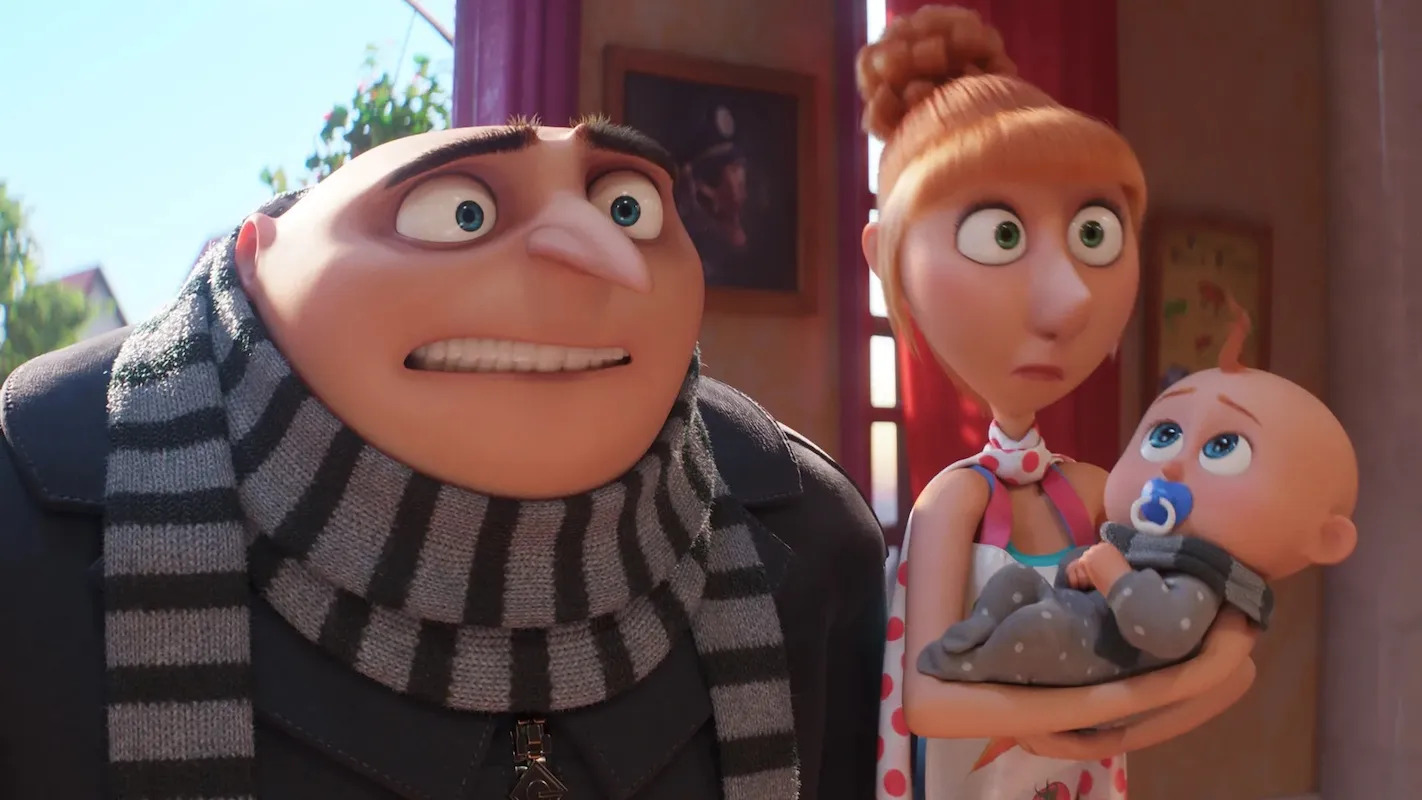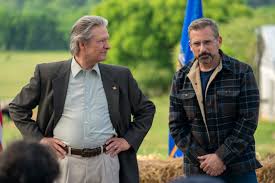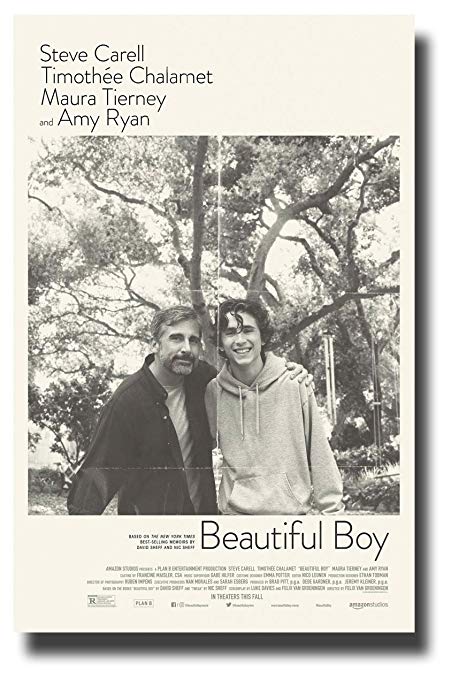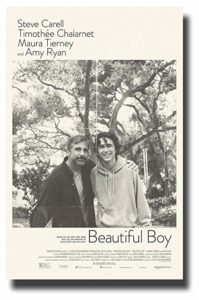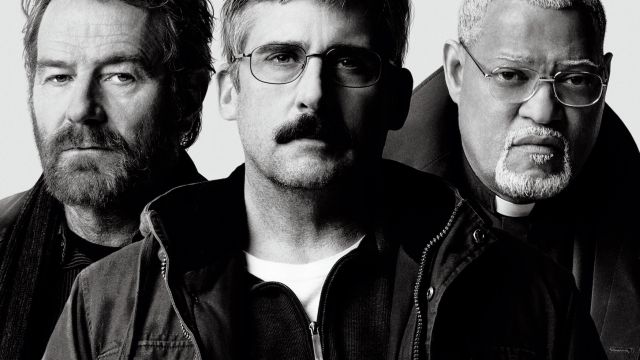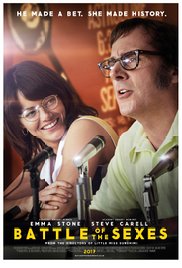Despicable Me 4
Posted on July 2, 2024 at 7:44 am
B +| Lowest Recommended Age: | Kindergarten - 3rd Grade |
| MPAA Rating: | Rated PG for some action sequences and some rude humor |
| Profanity: | None |
| Alcohol/ Drugs: | None |
| Violence/ Scariness: | Fantasy/comic peril and violence, no one badly hurt |
| Diversity Issues: | None |
| Date Released to Theaters: | July 3, 2024 |
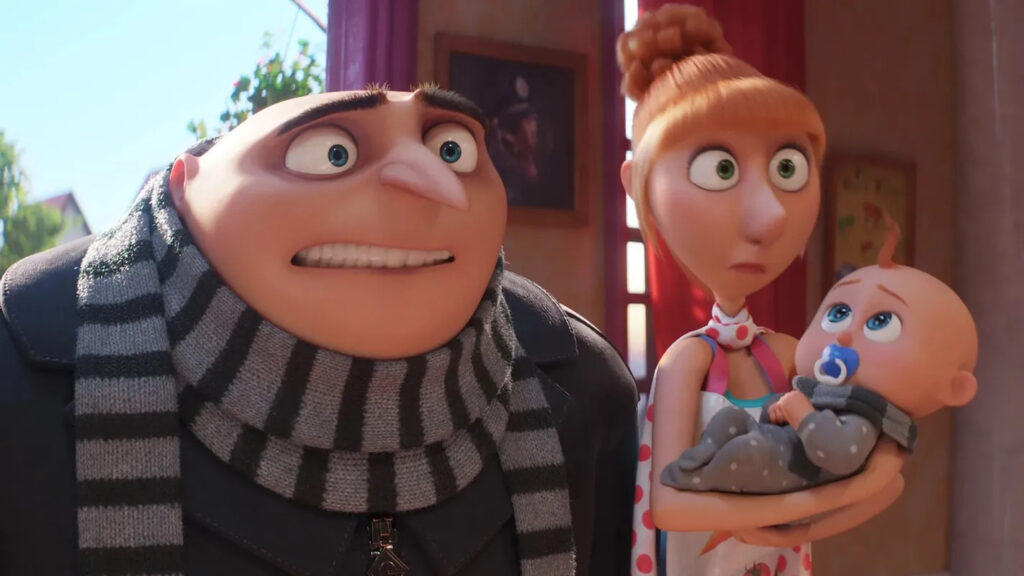
The latest entry in the DCU (Despicable Cinematic Universe), which includes the Minions movies, continues the saga of the once-despicable Gru (Steve Carell) with the same level of visual invention and endearing characters, plus action that strikes a kid-friendly balance between exciting and silly.
Gru is now a loving father to his three adopted daughters and his new baby with his wife, Lucy (Kristen Wiig). And he is proudly working with the AVL (Anti-Villain League). As the movie begins, Gru attends a class of 1985 reunion at his boarding school alma mater, the Lycée Pas Bon (School of the Not Good). He is not there to catch up with old friends; he is there to capture one of the world’s worst bad guys, the French-accented Maxime de Mal (last name means “of Bad,” voiced by Will Ferrell). Maxime is dating the glamorous, Spanish-accented Valentina (Sofía Vergara), with a sleek ponytail, stiletto heels, and a fluffy lapdog. He is very competitive with Gru for a reason we will learn later. And he has a surprise for his fellow alumnae. He has figured out a way to turn himself into a semi-cockroach, as he tells us, the world’s most indestructible and unstoppable creature.
After quite a scuffle, Gru and the AVL capture Maxime. But he escapes from prison, vowing revenge. The AVL moves Gru and his family to a safe house in a community called Mayflower, assigning them all new identities and names to protect them, and bringing most of the minions to AVL headquarters. They create a lot of chaos and some of them test out a new serum and develop super-powers that they have some trouble adapting to.
The next door neighbors are snobbish Perry (Stephen Colbert), his honey-voiced wife Patsy (“SNL’s” Chloe Fineman), and their young daughter, Poppy (Joey King), an aspiring villain who quickly discovers Gru’s real identity and blackmails him into helping her with a daring heist. Meanwhile, Maxime and Valentina are coming after Gru’s family in a cockroach-shaped plane.
The storyline is cluttered, with a lot of characters and locations, but that means none of it is around long enough to get tedious. Still, it is a shame to give so little time to the girls in favor of the baby. As with the other films, number 4 (six if you count the two Minions movies) is filled with delightful visual jokes and details, including some for the parents, or perhaps the grandparents (Gru in Boy George attire, singing “Karma Chameleon,” a “Terminator 2” reference). Glimpsing some of the series’ earlier villains at the end is a reminder that Maxime is second-tier compared to Vector, Belle, and Scarlet, and, like “Kung Fu Panda 4,” it seems to be transitioning to a new central character for future entries in the series. That is a wise move. Carell is still terrific, but we could use a bit more despicability in the next chapter.
Parents should know that this movie has extended fantasy/comic action sequences with weapons and characters in peril, including an infant, that may be too intense for younger kids. The movie includes a lot of exaggerated bad behavior and some potty humor.
Family discussion: Why do some of these characters want to be bad and how are they bad in different ways? Why was Margo worried about making new friends? Was Agnes right not to lie about her name?
If you like this, try: the other movies in the “Despicable Me” series, including the two “Minions” films, and some songs by Culture Club and Tears for Fears

